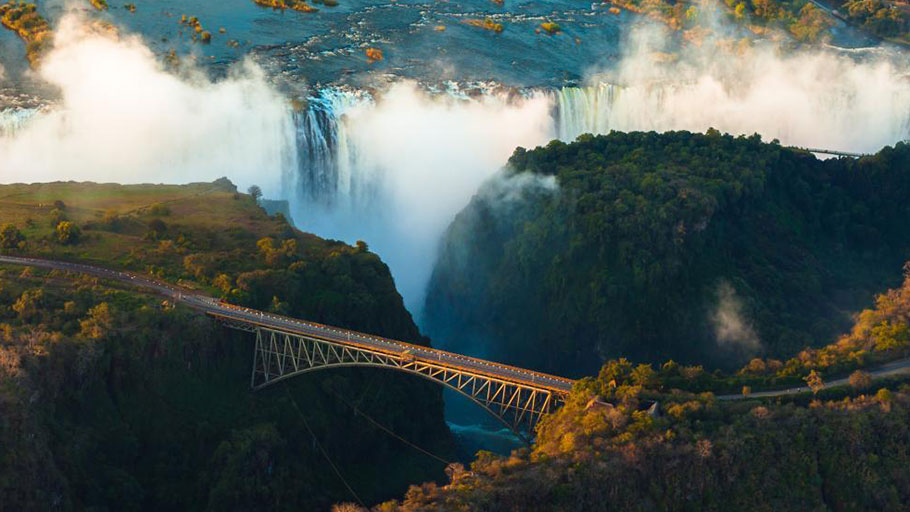President Trump is the most coarsely racist person to hold his office since Woodrow Wilson or even Andrew Johnson, and it’s never more obvious than when he’s talking about Africa. You don’t need to read between the lines to understand what Trump meant by describing several African countries (as well as Haiti and El Salvador) as “shitholes,” or when he groused that Nigerians would never “go back to their huts” once they had seen the United States. (He denied he made both comments.)
Many have already dissected the utter odiousness of these remarks — their vile prejudice in addition to their cruel violation of the teachings of Jesus Christ, among other things. But instead of adding to the pile, I would like instead to stand in praise of Africa.
I spent two years in southern Africa with the Peace Corps, and while that obviously doesn’t make me an expert on an entire continent, it does provide a familiarity with it that most Americans sadly lack. Whole publications can be based on wry jokes about Americans’ ignorance of Africa, especially its geography. (Much of that is probably down to the Mercator Projection used in many classrooms, which drastically overstates the size of northerly territory like Greenland.)
Indeed, in two years, I was only able to gain reasonably detailed knowledge of South Africa (where I served) and some passing experience with Namibia, Zambia, Zimbabwe, Lesotho, and Botswana. I had barely even heard of Namibia before I started my service — and was delighted to learn that it had a spectacular river canyon and a hauntingly beautiful endorheic desert basin. I was astounded at the high plateau of Lesotho, amazed and not a little intimidated by the free-roaming wildlife in the Okovango Delta, and mesmerized by the titanic Victoria Falls.
Few things are more cliché than some tourist enjoying scenic landscapes, but it still illustrates an important truth: Contrary to American (and European) myths — like the clearly fabricated book written by Treasure Secretary Steven Mnuchin’s wife Louise Linton portraying Zambia as some war-torn hellscape — most of Africa is quiet and peaceful, and can easily be visited without danger.
Everywhere I went — much of it in public transport or hitchhiking — I discovered ordinary people, just going about their daily business. Indeed, if anything characterized Africans in general — who are, of course, as internally diverse as such a vast population and continent would suggest — it was a friendly curiosity about America and Americans.
“Africans are normal people” is a pretty banal observation, for sure, but in Donald Trump’s America it counts as another important truth worth emphasizing. It is not a whole continent full of miserable, lazy, disease-riddled refugees; it’s just another place where human beings live, doing the best they can.
Trump isn’t the only person who could stand to learn this lesson. More than a little condescension — not to mention the traditional American insistence on blaming struggling people for their problems — has marked Western foreign policy approaches to Africa for decades. Indeed, destructive foreign meddling in African affairs was almost as bad in the immediate post-colonial decades as it was during the age of direct imperial rule, just carried out through disastrous “structural adjustment” programs.
In reality, where Africa has problems, it is almost entirely down to bad luck and especially white foreign domination.
It’s no coincidence that the poorest continent is the same one that was exploited and pillaged by European colonialists for centuries; whose population was kidnapped en masse and forced into slavery; and which has been treated abysmally by the IMF and the World Bank.
It’s also no coincidence that the worst-off parts of Africa have almost always previously been ruled by the most vile European colonialists. The Democratic Republic of the Congo, for instance, was dominated by a repressive, bungling Belgian state that left only a handful of college-educated people to run a country the size of Western Europe (while fomenting rebellion afterward and helping assassinate the new country’s prime minister). Before that, the country was the personal fiefdom of one man, whose rapacious quest for slave labor, ivory, and rubber was so merciless that he got some 10 million people killed in the process.
By contrast, Botswana, basically alone among African nations, managed to preserve most of its traditional elite and social structure, which could then evolve fairly naturally into a modern democracy. It’s not a coincidence either that it then posted one of the finest records of policymaking of any country in the entire 20th century. When African countries are allowed to govern themselves free of too much foreign meddling and domination, they can succeed wildly — even when almost totally surrounded by hostile white supremacist states, as Botswana was for most of that time.
No doubt there are many struggling and desperate Africans who could benefit enormously from U.S. residency, which I think we ought to be extremely generous in granting. But I’m also certain that what Africa “needs” from America is mostly just an outstretched hand of friendship, as between equals. We are all human beings, and Americans have as much to learn from Africans of all nationalities as the converse.
Ryan Cooper is a national correspondent at TheWeek.com. His work has appeared in the Washington Monthly, The New Republic, and the Washington Post.















